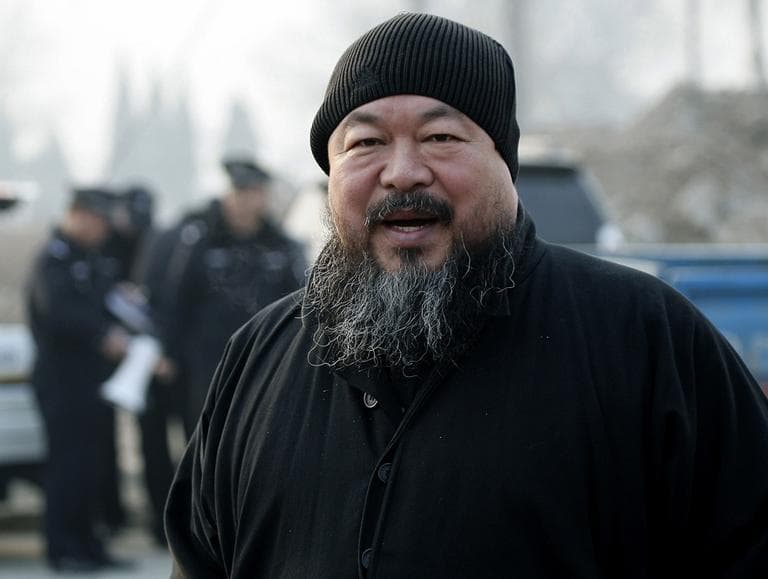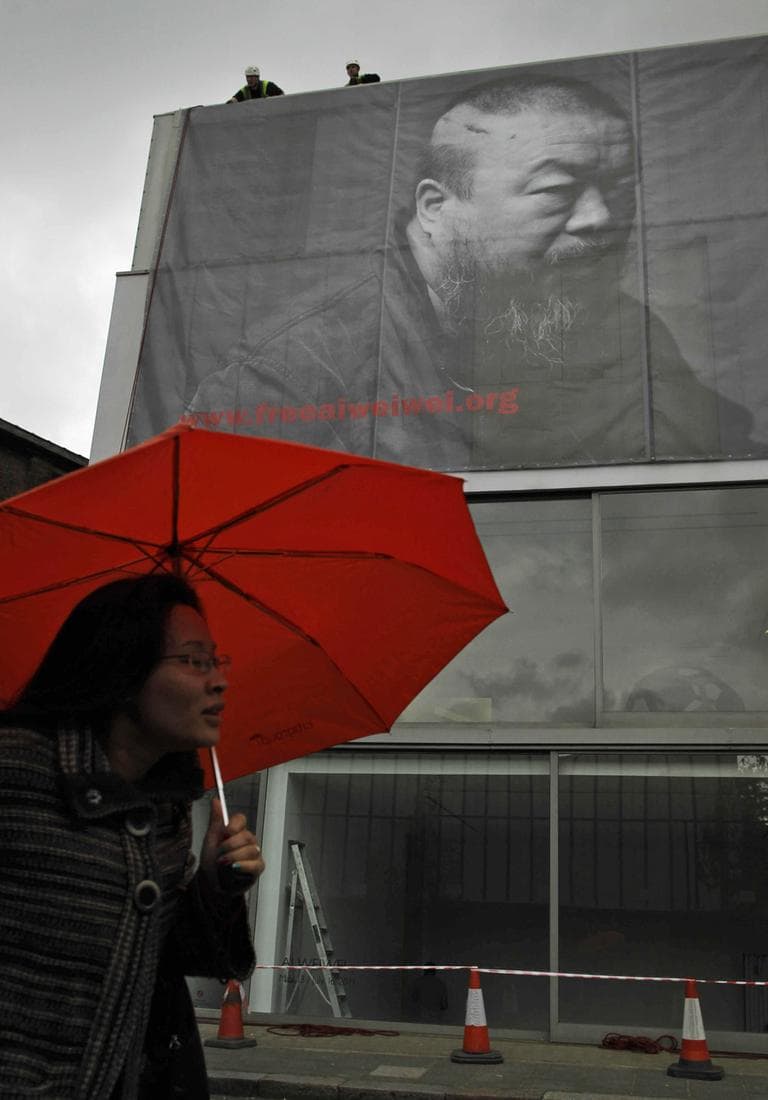Advertisement
DeCordova Joins Museum Community In Supporting Detained Artist

A large, red banner with the words "Free Ai Weiwei" now hangs outside the deCordova Sculpture Park and Museum in Lincoln. It's a peaceful gesture expressing concern for acclaimed Chinese artist Ai Weiwei. He was arrested by Chinese police on April 3. His whereabouts are unknown.
"We wanted to have a public response and keep the public aware of Ai Weiwei," said deCordova director Dennis Kois, "so we decided to do something very simple and straightforward."
The museum is also offering literature to visitors in the lobby.
Ai Weiwei is known for being outspoken and creating politically charged works. He helped design the "Bird's Nest" stadium for the 2008 Summer Olympics in Beijing — but he's also used his "social sculptures" to criticize and blame the Chinese government for the deaths of children killed in the Sichuan Province earthquake that same year. In retaliation, Ai Weiwei's work has been censored throughout his country and his studio was destroyed.
"As a contemporary art museum we're part of a larger world, a larger dialogue and a larger art-making community," Kois said. "Artistic freedom is critical, and we felt it was incumbent on us to participate."

Art museum directors around the world have responded to Ai Weiwei's detainment by signing a petition calling for the artist's release. The Guggenheim Foundation initiated the campaign. Kois added his name to a list of well over 100,000 signatories, including directors from New York's Museum of Modern Art, the Tate Modern in London and the Art Institute of Chicago.
Speaking by phone from North Carolina, Kois said Ai Weiwei's arrest is a hot topic among his peers. The Association of Art Museum Directors held its annual meeting there in Raleigh, and questions flew about the role museums should play in controversies over artistic censorship and human rights.
"Each institution has a different stance, a different relationship to China," Kois said. "There’s a pretty active debate about whether the right thing to do is respond publicly, or to be quiet about it and try to facilitate dialogue and further exhibitions with China — or somewhere in between."
Kois offered one example from the spectrum: the Museum of Contemporary Art, San Diego, recently hosted a 24-hour sit-in.
Then there's the Milwaukee Art Museum. It's opening a exhibition of Chinese art on June 11 ("Treasures from the Forbidden City," which finished its run at the Peabody Essex Museum this past January) and its director has said museums are no place for protests.
For some institutions the stakes are high, according to Kois. Shows could be pulled, relationships could sour, and millions of dollars could be lost.
At this time, Kois isn't worried about that for the deCordova — but he is worried about Ai Weiwei's fate. Other Massachusetts museum directors have also signed the Guggenheim's petition, including Jill Medvedow from the Institute of Contemporary Art Boston, Thomas Lenz of the Harvard Art Museums and the Peabody Essex Museum's Dan Monroe.
This program aired on June 8, 2011. The audio for this program is not available.
